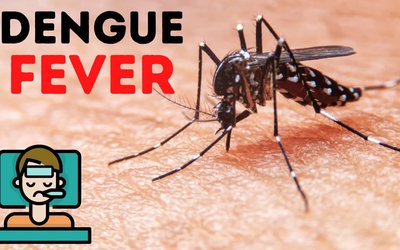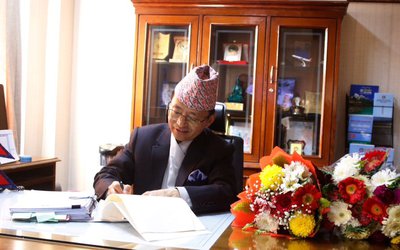
Low hospitalisation or less severe clinical symptoms of Covid patients during the third wave should not be mistaken as “normal flu”, according to several members of the Covid-19 task force constituted by the Gujarat government.
Citizens must adhere to Covid-19 appropriate behaviour of wearing masks, maintaining social distance and sanitisation, along with ensuring vaccination, they say. The experts also highlighted the risk posed by the virus to children, especially those aged below 15 years who are not yet eligible for vaccination and advised them to exercise caution.
Five experts of the taskforce — infectious disease specialist Dr Atul Patel, Zydus hospital director and diabetologist Dr VN Shah, Indian Institute of Public Health Gandhinagar director and public health specialist Dr Dileep Mavlankar, pulmonologist Dr Tushar Patel and neurophysician Dr Sudhir Shah — were speaking at a press conference in Ahmdeabad on Wednesday.
The experts also added that to avoid a situation as seen during the second wave, focus should be on stopping continued transmission of the virus.
The prevalent symptoms seen during the third wave include nasal block, cold, fever, throat pain and bodyache, Dr Tushar Patel pointed out.
Dr Sudhir Shah told this paper that so far neurological manifestations are not being seen in the patients unlike during the second wave. “So far, except for headache, dizziness and myalgia (muscle pain), no neurological signs are seen,” he said.
Dr Atul Patel cautioned that if cases go up rapidly, numbering in lakhs, then even one or two percent hospitalisation of such cases would mean a sizable number. Adding that the Omicron variant is seen to be infecting those who were already infected earlier and those doubly vaccinated or those with both, he indicated that the “entire Gujarat population is susceptible to the variant”.
“There are two categories applicable for Omicron variant — low risk and high risk. Low risk patients are those in the younger age groups and with no comorbidities… High risk patients are the elderly, those with comorbidities or immunocompromised through organ transplants or any other condition. Such patients are susceptible to progression of the infection, lung damage and ICU admissions… for them antiviral therapy such as Remdesivir might be required,” said Dr Atul.
- MUSTANG Nostalgia by Kishor Kayastha Unveiled
- Jan 09, 2025
- Amirt Bahadur Rai Assumed The Position of Foreign Secretary Of Nepal
- Jan 09, 2025
- South Asian University Holds Twelfth Governing Board Meeting, Discusses Future Initiatives and Reforms
- Jan 09, 2025
- IMF team meets Finance Minister Paudel
- Jan 09, 2025
- Weather Forecast: Mainly Fair In Kathamndu Valley And Mist And Fog In Terai
- Jan 09, 2025















